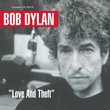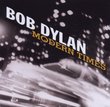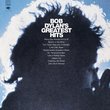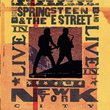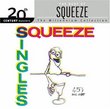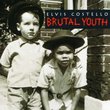| All Artists: Bob Dylan Title: At Budokan [Live In Japan, February, 1978] Members Wishing: 4 Total Copies: 0 Label: Sony Release Date: 10/25/1990 Album Type: Live Genres: Folk, Pop, Rock, Classic Rock Styles: Contemporary Folk, Singer-Songwriters, Folk Rock, Album-Oriented Rock (AOR) Number of Discs: 2 SwapaCD Credits: 2 UPCs: 074643606721, 5099746785024, 074643606721 |
Search - Bob Dylan :: At Budokan [Live In Japan, February, 1978]
![At Budokan [Live In Japan, February, 1978]](https://nationalbookswap.com/cd//l/36/6436/6436.jpg) | Bob Dylan At Budokan [Live In Japan, February, 1978] Genres: Folk, Pop, Rock, Classic Rock It was Dylan himself who said "the present now will later be past" and there's no better proof of it than this bizarre live collection of his old hits performed in big band versions where nothing seems to mean what it orig... more » |
Larger Image |
CD DetailsSynopsis
Amazon.com It was Dylan himself who said "the present now will later be past" and there's no better proof of it than this bizarre live collection of his old hits performed in big band versions where nothing seems to mean what it originally did. There's something going on here and even Dylan doesn't know what it is. Following the success of Cheap Trick and Neil Diamond--who both scored with Japanese live albums--Dylan took his Las Vegas revue with him and handed up "Don't Think Twice, It's All Right," "Mr. Tambourine Man," "Shelter from the Storm," and even "The Times They Are A-Changin'" without the vehemence that made them anthems for a past generation. Weird. --Rob O'Connor Similarly Requested CDs
|
CD ReviewsMusical Menopause? No, Genius in Yet Another Identity dylanlives | 05/02/2009 (5 out of 5 stars) ""Budokan" is a beautiful album especially to the Dylan fan who loves both the roughness of "Hard Rain"; the surprise sound of "Desire" and all that kept coming and coming! At the time, some cynics called the World Tour surrounding this album as "the alimony tour" as Dylan had just been divorced, and they saw it as both some type of "sellout". Musically, some felt that Dylan seemed to be purposefully burying his past nuanced use of his voice, which disappears here in songs such as "Shelter From the Storm". So, what else is new? Everything was and is! That's the beauty, and the beauty of Dylan's melodic singing and the melodic bigger-than-usual band always hit me as just another time when Dylan challenged us all by saying. "So, you think you know who I am? You think I, and my songs, must be as you expect and serve YOUR needs? That's not the deal. See if you can keep up! First listen, as is often the case, you won't be sure. Two listens and you will be hooked forever." Improving on Perfection Gerry Corn | 01/14/2009 (5 out of 5 stars) "Many of the reworked versions of these classic Dylan songs are actually an improvement on the original. They are more melodic and accessible than Bob's "sacred" studio recordings. The back-up band is superb and extremely versatille in many different musical styles, varied instruments and polyphonic arrangements. This record was recorded during his "Street Legal" era. I wish that he would have performed more songs from that underated album. Back to Budokan ,compare the free flowing "All Along the Watchtower" and the heartfelt gypsy rock version of "It's All Right Ma, I'm Only Bleeding". He even ventures into disco music with the pulsating beats of "Maggie's Farm". He also borrows a cantorial style in the mournful,"I want You". He also ventures into Barry Manilow's soft rock arena in "Is Your Love In Vain" and delves into Bob Marleyesque reggae stylings in "All I Really Want to Do". Even standards like "Mr. Tambourine Man" and "The Times They are-A-Changin'" surpass the original versions in every way. Try playing them side by side and you will see how a little "musical gravy" can really enhance those "dry, mashed potatoes". They are also a greatly more paletable way to introduce Dylan's songs to uninitiated new fans. Relax and enjoy the ride!" Dylan's detour to Budokan Todd Stockslager | Raleigh, NC | 12/27/2009 (4 out of 5 stars) "Some overall observations:
1. I never owned this Dylan live outing on its original double vinyl recording, but in those days when you had to queue up the discs and sides you wanted to listen to (even a turntable with a changer could only play one side of a platter at a time), I'll bet side 1 of disc 1 didn't get put on the turntable much after that first time. 2. Flutes and saxophones must be used sparingly, sparingly, sparingly. Clarence on "Born to Run"--yes. On pretty much anything by Dylan--no no no no no. Take for consideration, as an example, "I Shall be Released" here. 3. Dylan's voice sounds fantastic here, smooth, melodic, clear (not a single song would need a lyric sheet to follow). It also seems distant and unengaged too much of the time. Would that he could have these pipes back today and use them with the emotion and passion he pours into his current sub-scale growl. 4. While recorded live, the audience seems distant and the band disconnected, with just polite applause from the crowd and little energy transferred between the performers and the audience. It is perhaps unfair to contrast Budokan with the "Royal Albert" concert where the audience's progression from chill silence to boos and finally the cry of "Judas!" drove Dylan and the Band to the most furious live performance ever captured (The Bootleg Series, Vol. 4: Bob Dylan Live, 1966: The "Royal Albert Hall Concert" ), but it could be fairly compared to the Rolling Thunder Tour (Bob Dylan Live 1975 (The Bootleg Series Volume 5)), where the loose and joyous interaction between performer and audience enhanced and extended the performance. Most of the new arrangements are workmanlike but no better. One exception is the reworking of "Blowin' in the Wind" as a beautiful piano-driven, gospel-tinged lament (Dylan would soon undergo his Christian conversion and record a series of pure gospel albums). It brings a depth and beauty to the words that justify the arrangement. Another is "I Want You", normally a lilting, smiling rollick, now slowed to a melodic prayer-cry of soulful desire. "Its All Right, Ma (I'm Only Bleeding)" is amped up to a rock anthem that matches but can't enhance the urgency and power that have always been there in the matter-of-fact lyrics. Conversely, "Going, Going, Gone" changes not only the tune but all the lyrics, dulling the original "suicide note to a mild expression of dissatisfaction" (p. 163 of Brian Hinton's excellent Bob Dylan Complete Discography). Reggae-fied versions of "Knockin' on Heaven's Door" and "Don't Think Twice, Its All Right" work better and worse, respectively. Perhaps the context of this set is more important than the content. On the cusp of his career-shifting conversion, Dylan was just past the renewed burst of his spectacular song writing on "Desire" and "Street Legal." Further setting the market context, this was a period when Japanese audiences, particularly at the Budokan venue, were experiencing and embracing live American rock music acts for the first time, as witnessed by a series of "at Budokan" live recordings. Combine Dylan the becalmed artist with the market-driven imperatives, and you get Dylan at Budokan, a set best-suited for Dylan fans looking to complete their collection." |

